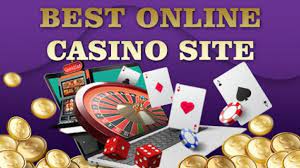It’s a good feeling to get your house cleaned up and the clutter removed, disposing of things you don’t need or don’t use any longer. And a course in miracles — those dusty relics taking up space on your bookshelves or squirreled away in boxes in the attic — often become the target of most house de-cluttering campaigns. How long has it been that you’ve read that book? Do you really need it any longer? Why not get rid of it?
But, before you haul those used books off to the dump, take a little time learning about how to sell or donate used books to help local charities raise money, to recycle resources, and even earn some extra cash for your family.
Used books are hot sellers online. Websites like Amazon.com, eBay.com and CraigsList.org are filled with listings of used books. Some popular titles are no longer in print, so their value keeps skyrocketing. Some niche titles are collectible or hard-to-find. Some titles contain in-depth ‘how-to’ information people are searching for online. And, some titles simply help people save money by buying used over pricier new books.
Step 3 – Sort the fiction titles into two boxes: Keep and Yard Sale. In the “Keep” box, I would put early or first editions of famous writers like Mark Twain, Ernest Hemingway and Rudyard Kipling. In the “Yard Sale” box, I would put popular fiction by authors like Dan Brown, Nora Roberts, Stephen King or Sandra Brown, plus anything from book clubs, slightly damaged books, recipe and cooking books, weight loss books and the stacks of magazines you want to get rid of fast.
Step 4 – Sort the non-fiction into two boxes: Keep and Yard Sale. In the “Keep” box, I would put biographies, history, how-to, pet, religious, UFO alien and crop circle books (big sellers!), relationship books, travel books, homeschooling topics, and any other books which look to be of a limited press run or contain unique content. Sometimes even small booklets on health topics sell very well online. In the “Yard Sale” box, put in Time-Life, Rodale Press, or Reader’s Digest books (these seldom sell online for enough to cover your shipping costs), books that are heavily marked up with writing or highlighting, outdated college textbooks, and heavily used children’s books, dictionaries, or self-help reference books.
Step 5 – Sit down in front of your computer. Log onto Amazon.com with your “Keep” box on one side of you, and your “Yard Sale” box on the other side of your chair. Take the first book from the “Keep” box and set it next to your computer keyboard, face down. Somewhere on the back cover you should see an ISBN (“ISBN” stands for “International Standard Book Number,” which since the mid-1960s has helped the publishing industry keep track of millions of books).
Type that book’s unique 10-digit (sometimes a 13-digit) ISBN into the search bar at the top of the Amazon.com webpage. If you cannot locate the ISBN on the back cover or on the book publisher info page, then simply type in the title of the book, as you might very well find it that way too. Scan through the results until you find the book that matches the front cover of your book.









More Stories
Crafting Culinary Delights: The Art of Wedding Catering
The Essence of Business: Navigating the Complexities of Entrepreneurship
The Rise of AI Blogs: Exploring the Intersection of Artificial Intelligence